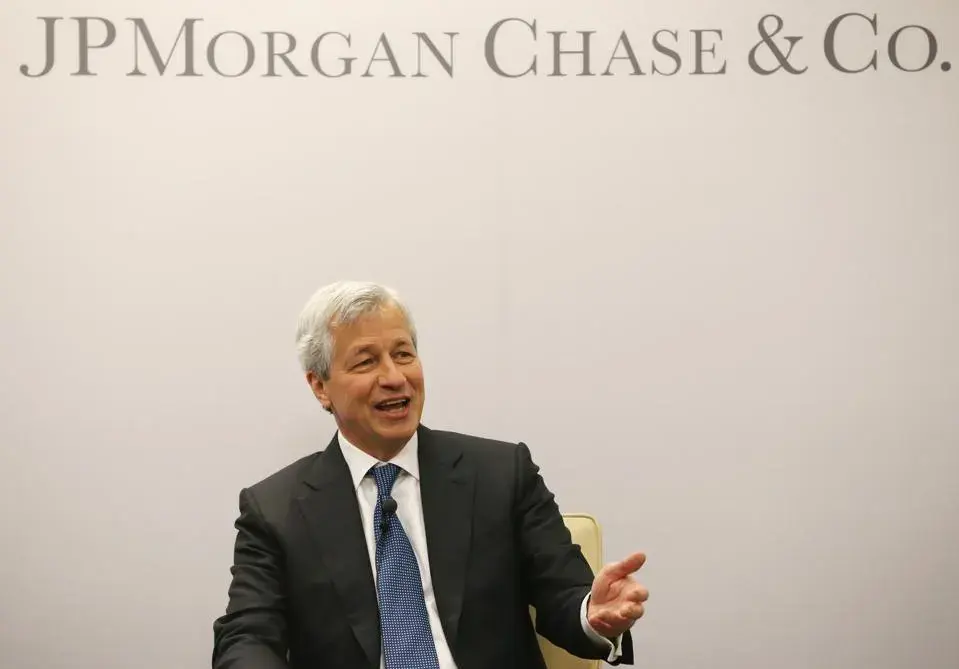As tensions between the United States and China escalate, CEOs of multinational corporations find themselves in an increasingly precarious position. The ongoing trade restrictions, cross-border investment hurdles, and limited market access force these leaders to carefully balance their business interests in both nations. With both superpowers demanding loyalty and imposing penalties for siding with the opposition, CEOs must tread carefully to maintain their global operations.
Navigating the Razor’s Edge
Operating in both the U.S. and Chinese markets has become akin to dancing on a razor’s edge for global corporations. Companies that do not engage with the Chinese market risk falling behind in one of the world’s most dynamic economies. Conversely, those seen as too cozy with China may face backlash or sanctions in the U.S., making it a delicate balancing act for CEOs of major corporations.
Nvidia: Riding the AI Rocketship
Nvidia’s CEO, Jensen Huang, is acutely aware of the stakes involved in the U.S.-China divide. Born in Taiwan, Huang has led Nvidia to become the world’s most valuable semiconductor company by strategically betting on the future of artificial intelligence (AI). In 2022, Nvidia’s chips powered most of China’s AI research labs, and the company’s customer list included tech giants like Baidu, Alibaba, Tencent, and ByteDance.
However, in August 2022, the U.S. Commerce Department banned the sale of Nvidia’s most advanced AI chips to China, citing concerns about their potential military applications. Despite this setback, Nvidia quickly adapted by releasing a modified version of its A100 chip that met U.S. export regulations, allowing the company to continue serving the Chinese market.
Huang, however, remains cautious about the long-term implications of U.S. policies toward China. In an interview with the Financial Times, he warned that China could develop its own AI chips if it can’t access U.S. technology, potentially undermining the American tech industry. While Nvidia’s dominance in AI hardware remains unchallenged for now, Huang’s concerns highlight the fragility of the U.S.-China tech relationship.
Tesla: Navigating an Intertwined Economic Relationship
Few CEOs have shown as much enthusiasm for China as Tesla’s Elon Musk. In 2022, China accounted for more than half of Tesla’s global sales, with 711,000 out of 1.3 million vehicles produced at its Shanghai Gigafactory. Production costs in China are approximately 20% lower than in the U.S., making it a crucial market for Tesla’s profitability.
However, Tesla’s success in China has also inspired a wave of domestic competitors, such as BYD, which has rapidly gained market share. In 2022, while Tesla’s sales grew by 40%, BYD’s shipments surged by 211% to 1.8 million vehicles. Musk has acknowledged that Chinese EV manufacturers are likely to become Tesla’s most significant global rivals.
In June 2023, Musk visited China to meet with government officials and key suppliers. During his visit, he emphasized the intertwined economic interests of the U.S. and China, likening them to “conjoined twins.” Despite Musk’s efforts to maintain good relations with China, the approval for Tesla’s new factory outside Shanghai has been slow, reflecting the challenges of navigating the U.S.-China divide.
JPMorgan: Chasing an Elusive Prize
For over a century, JPMorgan has been active in China, and CEO Jamie Dimon has pursued opportunities in the country with determination. In 2023, JPMorgan received approval to acquire 100% of its asset management business in China, which manages $27 billion in assets. However, the bank’s presence in China has not been without controversy. In 2021, Dimon was forced to apologize after joking that JPMorgan might outlast the Chinese Communist Party.
During a visit to Shanghai in May 2023 for JPMorgan’s Global China Summit, Dimon emphasized the bank’s long-term commitment to China. He acknowledged the challenges posed by the Chinese government’s policies but reiterated the importance of continued engagement between the U.S. and China. Despite these efforts, JPMorgan and other American investment banks have seen their share of IPO underwriting on China’s A-share market decline, raising questions about the long-term viability of Western banks in China.
Bridging the Divide
As the U.S. seeks to reset its relationship with China, CEOs like Huang, Musk, and Dimon have highlighted the potential costs of escalating confrontation. While they have strong economic incentives to encourage cooperation, they also understand the deep interconnections between the two economies. Severing these ties could limit growth potential and increase the risk of conflict.
The recent visit to Beijing by U.S. Secretary of State Antony Blinken, the first by a U.S. Secretary of State in five years, is a positive step toward resuming constructive dialogue. However, given the significant differences in policies and public opinion between the two countries, restoring relations will be a challenging task. For now, CEOs must continue to navigate the delicate balance between maintaining their positions in both markets and avoiding the pitfalls of an increasingly polarized global landscape.













